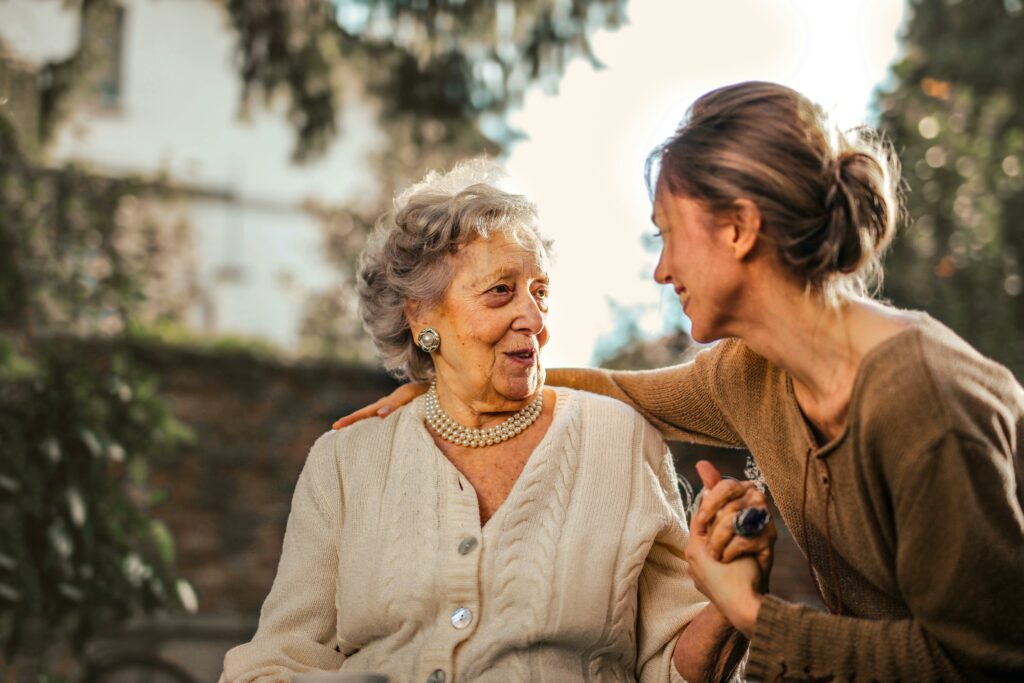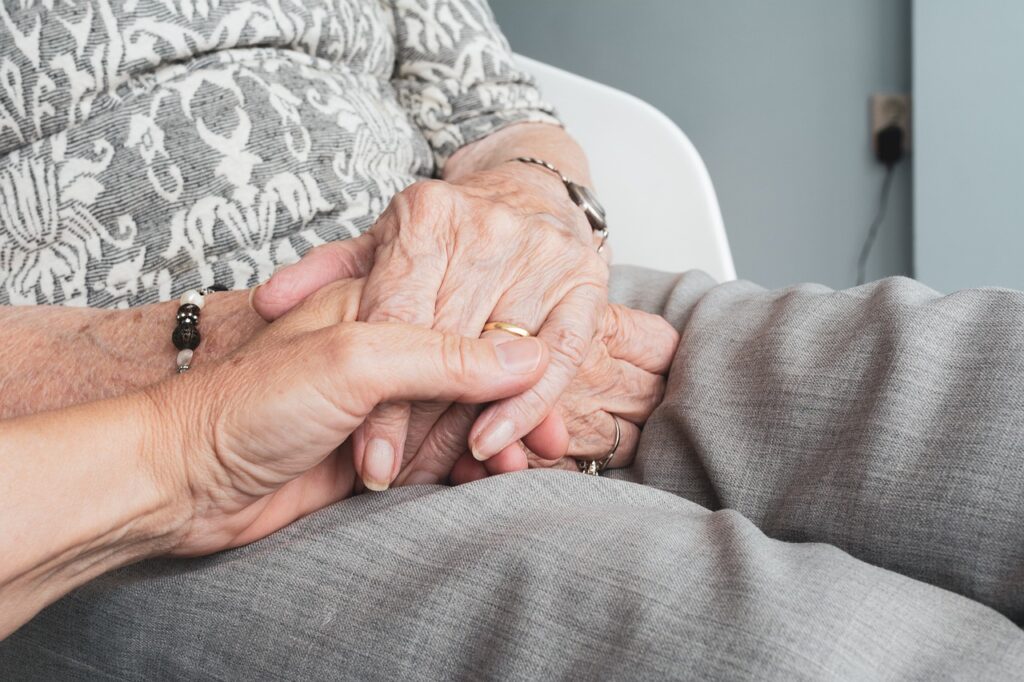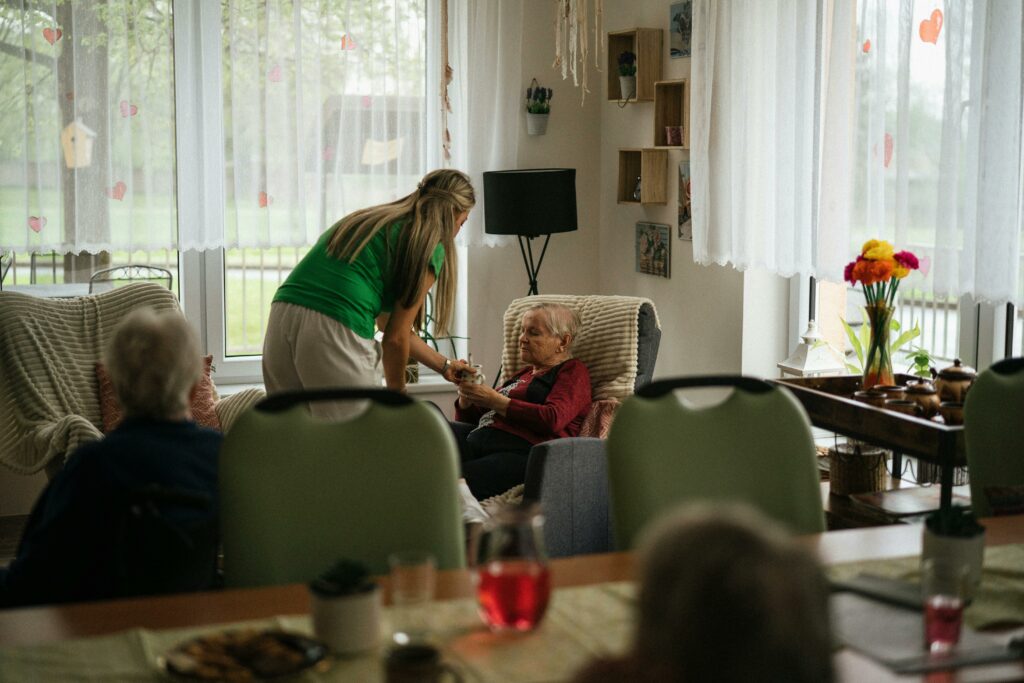Legal Notice: Data Breach Disclosure
- Personal Injury
- Car Accidents
- Truck Accidents
- Uber/Lyft Accidents
- Motorcycle Accidents
- Pedestrian Accidents
- Bicycle Accidents
- Bus Accidents
- E-Scooter Accidents
- Traumatic Brain Injury (TBI)
- Los Angeles Wrongful Death Lawyer
- Catastrophic Injuries
- Slip And Fall
- Product Liability
- Dog Bite Injury Lawyer
- Sexual Abuse
- Nursing Home Abuse
- Wildfire Accidents
- View All Practice Areas
- Wildfire
- Attorneys
- Case Results
- Resources
- Service Areas
- About Us
- Podcast
Los Angeles Elderly Abuse Attorneys

Signs of Elder Neglect and Abuse
Elder neglect and abuse can manifest in various forms. It’s important to recognize the signs to ensure the safety and well-being of seniors.
Physical signs
- Unexplained Physical Injuries: Scars, broken bones, sprains, and red bumps may occur in clusters or form symmetrical patterns.
- Untreated Medical Issues: Senior citizens who are victims of caregiver neglect may suffer from untreated bed sores, open wounds, and other unreported illnesses.
- Poor Hygiene: Bad hygiene may involve infections, unwashed hair, dirty skin, body odor, and untrimmed nails. It may also manifest in dirty clothes and unclean living spaces.
- Weight Loss: Dependent adults may experience signs of malnutrition and dehydration if not taken care of properly. Moreover, the combined physical and emotional abuse may lead to the deterioration of their overall health.
- Physical Restraint Marks: Marks on wrists, ankles, or hips also indicate physical abuse on an elderly person.
Emotional signs
- Social Withdrawal: An elder or dependent adult may avoid normal activities or social interaction if they experience psychological abuse. For example, they have been interested in board games before the incident, but after the incident, they lost interest in their hobbies.
- Sudden Mood Changes: People in assisted living facilities usually experience mood swings due to their changing lifestyles. However, physical harm or mental suffering can trigger severe depression, anxiety, and aggressiveness. They may also display unexplainable fear around their abusers.
- Confusion: Although dependent adults are often confused, emotional and physical abuse may cause increased disorientation beyond what is normal for their age.
Financial signs
- Unusual Financial Activity: Victims of elderly abuse are often forced to withdraw large amounts of money or make unusual purchases. For example, they may buy expensive bags or shoes because of deception.
- Missing Belongings: They may also lose their personal property, such as jewelry and other valuable items, due to theft. It may affect the mental health of the partially dependent elderly if the lost things have sentimental value.
- Sudden Changes in Legal Documents: Abusers may deceive the elderly into changing the latter’s wills, powers of attorney, and trust agreements. For instance, Person A, a caregiver in an assisted living facility, coerced Person B, a nursing home resident, into giving him a portion of B’s real or personal property.

The Role of Elder Abuse Attorneys
An elder abuse lawyer plays a significant role in protecting and enforcing the rights of senior citizens, offering a range of services to support and advocate for their clients.
Legal advice
An attorney provides advice on their clients’ rights and legal options, helping victims of elder abuse decide whether to reach an amicable settlement or pursue a criminal case against the abuser. Their recommendations are based on the facts provided during consultations with the elderly or their concerned family members.
Estate planning
Estate planning involves creating wills and trusts to ensure the elderly’s assets are distributed according to their wishes. For example, an irrevocable trust can prevent manipulation, ensuring senior citizens’ intended beneficiaries receive the designated assets.
Evidence collection
Attorneys assist clients in gathering evidence such as photographs, CCTV footage, medical records, financial documents, and witness statements to substantiate claims of physical, mental, or sexual abuse. They may collaborate with physicians to document the severity of injuries or mental suffering and consult financial experts to prove cases of financial abuse.

Asset recovery
Asset recovery begins with thorough investigation and evidence gathering, including financial records and witness statements. Attorneys file civil lawsuits for fraud or breach of fiduciary duty, then enforce judgments through wage garnishment or asset seizure, ensuring stolen items are returned to the elderly.
Negotiation
Elder abuse lawyers can negotiate with other parties to achieve fair settlements without lengthy court proceedings, resulting in timely resolutions that prevent further stress for the elderly and restore their financial stability promptly.
Filing lawsuits and representation
Section 368 of the California Penal Code punishes abuses against elders and dependent adults, serving as a basis for filing criminal complaints. If an amicable settlement cannot be reached, the attorney represents the client in court to ensure justice is served.
Contact a Reputable Elder Abuse Attorney
Elder abuse attorneys play a crucial role in assisting vulnerable seniors by providing legal advice, creating legal documents, collecting necessary evidence, aiding in asset recovery, negotiating with the other party, and filing lawsuits if settlements fall through.
At Adamson Ahdoot, our skilled lawyers in California offer exceptional litigation support. We provide consultations in both English and Spanish to help victims of elder abuse and their loved ones. With more than 100 years of combined legal experience, our expertise can greatly benefit your claim.
Contact us at (800) 310-1606 or visit our website for a free consultation.
Blog
California's November News Round-Up Features Multimillion-Dollar Wrongful Death Lawsuits,...
In California, most personal injury claims are based on the legal concept of negligence. H...
Coping with the loss of a loved one is never easy, particularly when it is caused by someo...
Road safety in California is reaching a critical point, especially for cyclists. While the...
California’s October News Round-Up Features Disney Park Injury Incidents, Sexual Abuse S...
When a car accident occurs, one of the first and most important questions is: who is at fa...
Personal injury accidents can happen anywhere and often have devastating consequences. Eve...
You're riding your bike home from work when you're suddenly hit by a car. What happens nex...
California's September News Round-Up Features ICE-Related Injuries, Hospital Negligence, a...
Interstate 5, the main artery running through the heart of Los Angeles, is one of Californ...
Free Case Review
"*" indicates required fields
By submitting this form, you consent to be contacted by Adamson Ahdoot LLP or its representatives via call, text, or email, including automated technology, about your potential case or claim. You agree to receive texts at any time, including after hours. Message and data rates may apply. Reply STOP to opt out or HELP for help. Consent is not required for legal services.
Other Practice Areas
Accidents
- 5 Common Types of Car Accidents
- Accident Reconstruction in Los Angeles
- Amazon Product Defect Injury
- Assault Injury Lawyer
- Attorney Regarding Uber Accident
- Aviation Accident Lawyer
- Bakersfield Bus Accident Lawyer
- Bakersfield Car Accident Lawyer
- Bakersfield Motorcycle Accident Lawyer
- Bakersfield Rideshare Accident Lawyer
- Bakersfield Truck Accident Lawyer
- Boat Accident Lawyer
- California Metro & Railroad Accidents
- Can an Uber Driver Sue Uber
- Car Accident Lawyer
- Car Accidents at Night
- Carnival Ride Accident Attorney
- Commercial Truck Accident Lawyer
- Commercial Vehicle Accident Lawyer
- Common Carrier Accident Lawyer
Injuries
- About Brain Injury Lawsuits
- After Head Injury
- Amputation & Disfigurement Injury Lawyer
- Back Injuries from Car Accidents
- Brain And Spinal Cord Injuries Lawyer
- California Dog Bite Injuries
- California Dog Bite Laws
- California Wrongful Death Attorney
- Chronic Pain
- Common Back & Neck Injuries
- Common Types of TBI
- Dangerous Dog Breeds
- Delayed Pain
- Dismemberment or Amputation Injury
- Dog Bite Attorney in California
- Dog Bite Damages
- Dog Bite Injury Lawyer
- Dog Bite Liability
- Dog Sitter Dog Bites
- Football Head Injuries Lawyer
Get a Free Consultation:
(424) 392-7649
Connect with an Attorney
Fill Out the Form Below
"*" indicates required fields
By submitting this form, you agree to be contacted and recorded by Adamson Ahdoot LLP or a representative, affiliates, etc., calling or sending correspondence to your physical or electronic address, on our behalf, for any purpose arising out of or related to your case and/or claim. Standard text and/or usage rates may apply. If at any time you wish to opt out of communication, reply “STOP.” Text “HELP” for assistance. Message frequency may vary. See the privacy policy and Terms and Conditions on the webpage.

"*" indicates required fields
Are you sure you don't need help?













